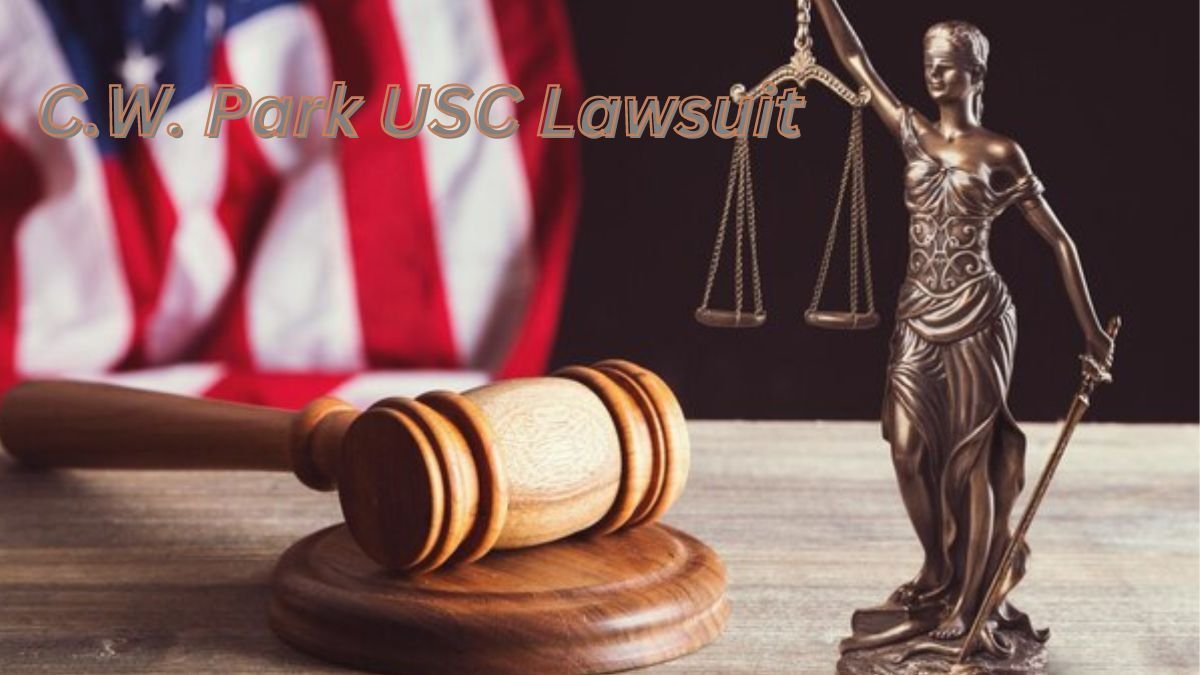The C.W. Park USC Lawsuit, a distinguished professor at USC, stems from a series of incidents that led to allegations against the university. C.W. Park, a renowned scholar in marketing and consumer behavior, has been part of USC’s faculty for decades, contributing to its reputation in the field of business education. However, his relationship with the institution took a contentious turn, culminating in this lawsuit.
Who is C.W. Park?
C.W. Park is a highly respected academic figure, best known for his extensive work in the field of consumer psychology and marketing. A professor at USC’s Marshall School of Business, Park has authored several groundbreaking studies and received numerous accolades for his research contributions. His work has helped shape marketing strategies and consumer behavior understanding globally.
Understanding the Allegations
The lawsuit, filed by Park, centers on allegations of wrongful termination, discrimination, and breach of contract. According to court documents, Park claims that he was subjected to unfair treatment due to his age and race, leading to a hostile work environment and ultimately, his forced resignation. The lawsuit also accuses USC of failing to follow its policies regarding faculty rights and procedural fairness.
Park alleges that the university’s actions were not only unjust but also discriminatory, violating both federal and state laws that protect employees from such practices. The lawsuit seeks damages for lost wages, emotional distress, and reputational harm, alongside other legal remedies.
Key Events Leading Up to the Lawsuit
The friction between C.W. Park and USC appears to have escalated over several years. According to the lawsuit, issues began to surface when Park raised concerns about the university’s handling of research funds and questioned certain administrative decisions. Park claims that following these events, he experienced a series of retaliatory actions, including diminished research support, exclusion from key academic committees, and adverse performance reviews, all of which he argues were part of a targeted effort to push him out of his position.
Read Also: WWE SmackDown Episode 1491 A Night of Unforgettable Action
Legal Arguments in the C.W. Park USC Lawsuit
The legal arguments presented in the lawsuit are multifaceted, involving several critical aspects:
1. Wrongful Termination and Breach of Contract
At the heart of Park’s lawsuit is the claim of wrongful termination and breach of contract. Park argues that his resignation was not voluntary but rather coerced due to the hostile environment created by USC’s actions. He maintains that USC violated its own employment policies, which stipulate fair treatment and due process for all faculty members. The lawsuit asserts that USC breached its contractual obligations by failing to provide a safe and equitable working environment.
2. Discrimination Claims
Park’s lawsuit alleges that he faced discrimination based on his age and race. He contends that younger, less qualified professors were promoted over him, and he was marginalized due to his age. Additionally, Park claims that his race played a role in the alleged discriminatory practices, citing instances where minority faculty members were treated differently or excluded from certain university functions.
3. Retaliation Claims
Park also argues that the university retaliated against him for speaking out against what he perceived as mismanagement and lack of transparency in the allocation of research funds. He claims that his actions, which were intended to address concerns about financial integrity and governance, were met with punitive measures rather than constructive dialogue.
USC’s Defense and Counterarguments
The University of Southern California has responded to Park’s lawsuit with a firm denial of all allegations. In its defense, USC argues that all decisions regarding Park’s employment were made based on legitimate performance evaluations and that no discrimination or retaliation occurred. USC’s legal team has stated that Park was treated fairly under university policies and procedures.
The University’s Stance on Discrimination Allegations
USC has strongly denied any claims of discrimination, highlighting its commitment to diversity and inclusion. The university asserts that it has comprehensive policies to protect employees against any form of discrimination and that these policies were adhered to in Park’s case. USC’s legal filings argue that Park’s claims are without merit and that his allegations do not accurately reflect the university’s practices or values.
Addressing the Retaliation Claims
The university has emphasized that there is no evidence to suggest that Park faced any adverse consequences as a result of his complaints. Instead, USC contends that any changes in Park’s professional circumstances were due to factors unrelated to his allegations.
Implications of the C.W. Park USC Lawsuit
The outcome of this lawsuit could have far-reaching implications for USC and other academic institutions. It raises critical questions about how universities handle internal disputes, particularly those involving allegations of discrimination and retaliation. The case also underscores the importance of transparency and fairness in university governance, especially in the allocation of research funds and the treatment of faculty members.
Potential Impact on Faculty Policies
If Park’s claims are upheld, it could lead to significant changes in how universities across the country manage faculty grievances, handle allegations of discrimination, and enforce policies regarding academic freedom and governance. This case could set a precedent for similar disputes in the future, prompting universities to review and possibly revise their employment policies and practices to ensure compliance with legal standards.
Repercussions for University Governance
The lawsuit has already sparked a debate within the academic community about the role of governance in higher education institutions. If the court finds in favor of Park, it could prompt a broader examination of how universities allocate funds, make decisions, and uphold the rights of their faculty members. The case may also encourage other academics who feel marginalized or discriminated against to come forward with their complaints, potentially leading to further legal challenges.
What Happens Next?
As the lawsuit progresses, both parties are likely to present further evidence and testimony to support their claims. The discovery phase, where both sides exchange information relevant to the case, will be crucial in determining the lawsuit’s direction. Alternatively, the parties could reach a settlement, which would avoid a lengthy court battle but might not provide the same level of public accountability or transparency.
Ongoing Developments in the Lawsuit
The case is still in its early stages, and new developments could emerge as both sides prepare their arguments. Legal experts are closely watching the case, as its outcome could influence future litigation involving academic institutions and employment law.
Public and Academic Reactions
The C.W. Park USC lawsuit has elicited a range of responses from the public and the academic community. Some view the lawsuit as a necessary step toward ensuring fairness and accountability in higher education, while others see it as a contentious battle that could tarnish the reputations of both parties involved.
Support for C.W. Park
Many in the academic world have expressed support for Park, arguing that his case highlights systemic issues within higher education institutions, including discrimination and the lack of transparency in governance. Colleagues and former students have praised Park for his courage in standing up against what they perceive as unjust practices and have called for a thorough investigation into the allegations.
Criticism of the Lawsuit
On the other hand, some critics argue that the lawsuit may have negative consequences for USC’s reputation and could divert resources away from academic and research endeavors. They contend that disputes of this nature should be resolved internally, without resorting to legal action, to protect the institution’s integrity and preserve its focus on education and research.
Conclusion
The C.W. Park USC lawsuit is a significant legal case with potential implications for university governance, faculty rights, and employment law. As the case unfolds, it will be essential to monitor how both sides present their arguments and what evidence comes to light. The outcome could have far-reaching consequences not only for USC but also for academic institutions across the United States, potentially leading to changes in policies and practices that govern faculty treatment and university governance.
FAQs
What is the C.W. Park USC lawsuit about?
The lawsuit involves allegations of wrongful termination, discrimination, and breach of contract filed by C.W. Park, a former USC professor, against the University of Southern California.
Why did C.W. Park sue USC?
C.W. Park sued USC for what he claims were discriminatory practices, wrongful termination, and retaliation after he raised concerns about the management of research funds and governance issues.
What are the potential outcomes of the lawsuit?
Possible outcomes include a court ruling in favor of either party, a settlement between the parties, or changes to university policies depending on the legal findings.
What is the current status of the lawsuit?
The lawsuit is still in its early stages, with both parties preparing their arguments. The case may go to trial or settle in the coming months.





